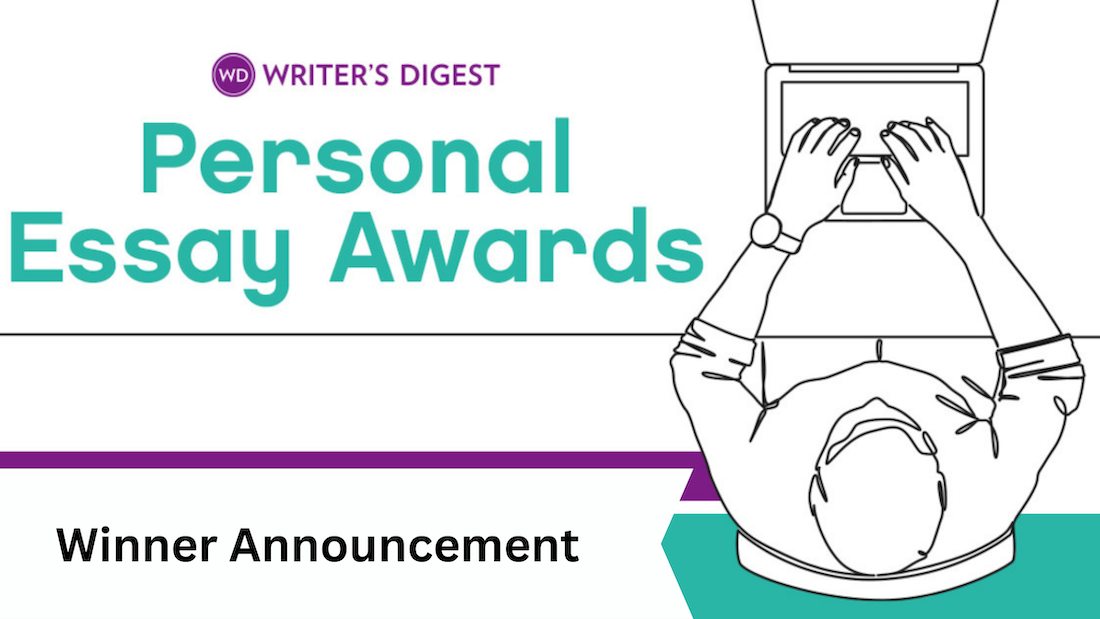7th Annual Short Short Story Competition Winners – Fourth-place
Announcing the Fourth-place winner of the 7th Annual Writer’s Digest Short Short Story Competition
Twitch
By Benjamin Gleisser
The lanky stranger slid into the chair across from Geiger. "I saw you twitch."
"What?" Geiger said, surprised.
The young man sat forward, rested his elbows on the table. He had the look of a college student: disheveled, and with the deep-set eyes of someone who stayed up late to study, drink and argue politics. His long, black coat, probably bought at a thrift store, was oddly out of style and hung loose on him.
"When I walked in," he said. "You looked up from your newspaper and saw me. Your eyebrows twitched. You recognized me."
"I don't know what you're talking about," Geiger said. "I don't know you." Yet he felt his shoulder muscles tighten. He glanced around the coffeehouse to see if anyone was looking at him. At them.
"Are you sure? Look at me." The stranger angled his face, giving Geiger a different view. "Look closely."
Geiger hesitated—the guy did seem familiar. But familiar in a creepy way, like the tremble of anxiety stirred by a whirring dentist's drill.
He lowered his head and focused on his newspaper, hoping the stranger would take the hint and leave. He stared so hard at the words, he forgot what he'd been reading. Why do people always bother me? he thought, getting angry. Then he heard Dr. Groyd's voice in his head: Nobody seeks you out. Don't get angry at random events, the psychiatrist said. It all comes down to being in the wrong place at the right time.
Geiger's joy was Saturday mornings at the coffeehouse, a newspaper before him, a cup of steaming Colombian dark roast by his right hand. Murmurs of gentle conversation kept him company. And at 11 a.m., the sweet scent of freshly baked chocolate chip cookies perfumed the air. He bought two every week, and ate them slowly, while the chocolate chunks were still warm and moist.
"You don't know me now, but the last time I walked in hereÉ" The man shrugged. "Well, I made quite a ruckus."
"You're mistaking me for someone else," Geiger said, not looking up. He would give the man one more chance to leave—then he'd stand up and call for the manager. He began to count backward from sixty.
"Too damn real!"
The espresso machine shrieked; Geiger looked up, startled.
The stranger leaned over Geiger's newspaper. "You're reading about synchronicity and déjà vu! Incredible!" He met Geiger's eyes. "That wasn't what you were reading last time. It was something about Ð oh, I don't know. I remember a big picture of a clock."
"Last time?"
The man drew a silver card from a coat pocket and brought it to his mouth. "Subject doesn't remember what happened—well, of course he wouldn't remember, because it hasn't happened yet. But items in the physical environment have changed." He thought a moment. "In preparation for the event, as if it will occur?"
He lowered the card and looked around the coffeehouse. "I wonder what else is different now."
Geiger's eyes followed the young man's gaze around the Saturday morning crowd: solitary readers and chatting friends; a mother breaking a scone into pieces for her young son; two men concentrating on a chess game. A guy in a leather jacket walked toward the bathroom door, located in a half-lit alcove at the back of the room.
"I should've paid closer attention last time," the young man muttered.
He spoke again into the silver card. "Something changed the Universe. ButÉ is that energy intelligent? Did it weigh possibilities before making choices?"
He was quiet, lost in thought.
Then he slapped his forehead. "Too damn real! I just proved the existence of God!"
Geiger stopped resenting the stranger. The young man was odd, but his eccentricity was intriguing. He was no threat. Curious to hear the fellow's story, Geiger prodded him to talk.
"I can't tell you," the man said. "I shouldn't've even talked to you. But you twitched when you saw me walk in, and I just had to find out if—"
He shoved his hands in the pockets of his long coat and leaned forward, quickly looked left and right, then lowered his voice. "Well, I guess I can tell you, since you won't remember it anyway.
"It's my graduate project. An experiment in psychology and philosophy, filtered through quantum physics. My thesis: Time is holistic. The past and the future coexist in the present. In other words, we're not only aware of past events, which exist in memory, but at some deep level, we have pre-sentient knowledge of the future."
He reacted to Geiger's amused expression with a frown. "You don't believe me. Think of it this way: Time is like DNA. Your DNA has a record of your past—your ancestral generations—and the potential for future generations, in the form of genes. And you, the carrier of your DNA, exist in the present. So, your past, present and future coexist inside you."
"And how do you know all this?"
"Well, as long as you're going to forget everything, I might as well tell you I'm from the future. The linear future."
Geiger laughed.
"I'm being serious. See, I staged an event here, then backtracked to a moment before the event occurred to see if anyone anticipated—or, should I say, Ôremembered forward'—the event. No one reacted to my presence, except you. I saw your forehead twitch. And now I see you reading an article about déjà vu—the feeling of having already experienced something that's actually being experienced for the first time—"
The young man's eyes lit up and he raised his silver card again. "Here's another possibility. I didn't travel back in time after the event, but instead passed into a parallel reality where the event never happened. What if we exist in simultaneous realities, and each existence is aware of traumas that occur in every other version of reality?" He looked off, then mumbled, "How could I prove that?"
Geiger smiled as he picked up his coffee cup. "So, you never told me why you think I twitched when I saw you."
"I shot you in the forehead."
Geiger blinked. His fists tightened.
"I staged a violent event and you were a participant. An unwilling participant. I burst in here—well, maybe not this exact coffeehouse, but one just like it. I had one of your weapons and started shooting. You were the first person I killed. I looked straight at you. Your mouth opened Ð I think you were going to say something. But I pulled the trigger. You may have even seen the blur of the bullet as it sped at you."
He reached across the table, touched a spot in the middle of Geiger's forehead. "Your involuntary twitch could be you Ôremembering' the bullet thwacking into your skin."
There was an iciness in the air now.
The man smirked. "Who's laughing now? Don't worry, I fixed everything. I adjusted the time sequencer and—" He snapped his fingers. "You're still real. In fact, you wouldn't've even been aware of what had happened if I hadn't told you. And, you won't remember a thing about me the moment I walk out of here and fix everything."
Geiger tensed; he saw himself grabbing the young man by the throat. He was troubled by the heat of his anger, and trembled at the thought of hurting the odd man across the table from him.
"Get out of here."
"Too damn emotional." The stranger shrugged, stood up and smoothed his long coat. "But I must admit," he said, glancing around the room. "I'm curious to see what else has changed. Maybe reality has the ability to rewrite its own memory."
Geiger watched the man leave. His breaths were slow and deep. He unclenched his jaw, then wiped the sweat off his forehead with the back of a shaking hand. And to think he'd been beguiled by that creep. Christ, he thought, looking down at the newspaper. These days, you never know who's a lunatic. Thank God I didn't lose it.









